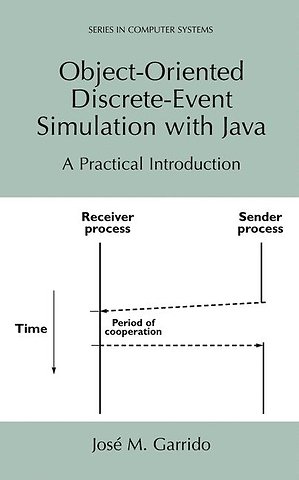Object-Oriented Discrete-Event Simulation with Java
A Practical Introduction
Gebonden Engels 2001 2001e druk 9780306466885Samenvatting
Researches and developers of simulation models state that the Java program ming language presents a unique and significant opportunity for important changes in the way we develop simulation models today. The most important characteristics of the Java language that are advantageous for simulation are its multi-threading capabilities, its facilities for executing programs across the Web, and its graphics facilities. It is feasible to develop compatible and reusable simulation components that will facilitate the construction of newer and more complex models. This is possible with Java development environments. Another important trend that begun very recently is web-based simulation, i.e., and the execution of simulation models using Internet browser software. This book introduces the application of the Java programming language in discrete-event simulation. In addition, the fundamental concepts and prac tical simulation techniques for modeling different types of systems to study their general behavior and their performance are introduced. The approaches applied are the process interaction approach to discrete-event simulation and object-oriented modeling. Java is used as the implementation language and UML as the modeling language. The first offers several advantages compared to C++, the most important being: thread handling, graphical user interfaces (QUI) and Web computing. The second language, UML (Unified Modeling Language) is the standard notation used today for modeling systems as a collection of classes, class relationships, objects, and object behavior.
Specificaties
Lezersrecensies
Inhoudsopgave
Rubrieken
- advisering
- algemeen management
- coaching en trainen
- communicatie en media
- economie
- financieel management
- inkoop en logistiek
- internet en social media
- it-management / ict
- juridisch
- leiderschap
- marketing
- mens en maatschappij
- non-profit
- ondernemen
- organisatiekunde
- personal finance
- personeelsmanagement
- persoonlijke effectiviteit
- projectmanagement
- psychologie
- reclame en verkoop
- strategisch management
- verandermanagement
- werk en loopbaan
